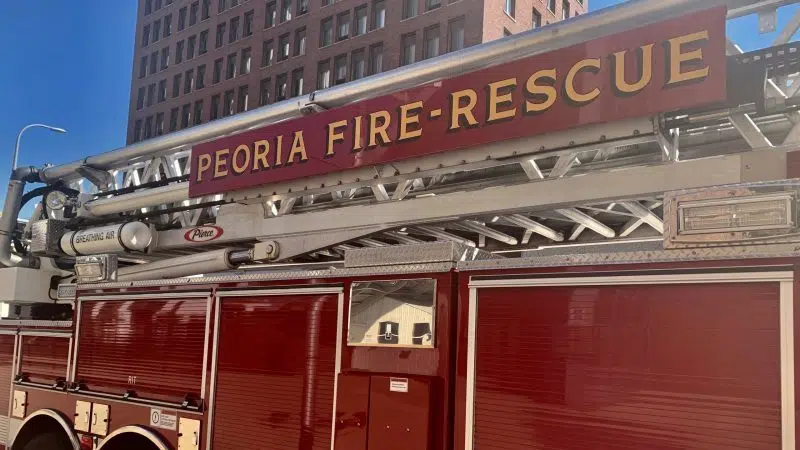PEORIA, Ill. — Early discussions began Tuesday night among Peoria City Council members regarding placing a property tax increase on February’s ballot that would provide for fire and police protection.
Illinois law states by 2040, police and fire pensions must be 90% funded.
In 2010, the city contributed $10.2 million to the pensions, $8.5 million of which came from property tax, and the other $1.7 million came from corporate income tax.
By 2020, the city was contributing $24.6 million.
By law, a tax of up to .075% can be levied without public approval.
City Manager Patrick Urich presented a slideshow that revealed one cent per $100 of assessed value would generate $200,000 in property taxes.
Thus, each levy could generate $1.5 million without referendum.
Anything between .075% (7.5 cents) and .6% (60 cents) must be approved by vote.
At-Large Councilman John Kelly said placing the item on the ballot would only represent more of the same formula he believes is unsuccessful.
“I was in the investment business all my life. 25 years ago, I did police and fire pensions and at that time, everybody was screaming and yelling about how this is untenable, but we don’t do anything about it,” he said.
“If we keep going the way we’re going and we’re out of money, we’ve got to raise taxes, lay off people… in 25 years, we’ll have six firefighters and four police officers and 300 people living in the City of Peoria.
“We must not keep doing the same things. These same things don’t work.”
Third District Councilman Tim Riggenbach called the topic the “ultimate town hall meeting.
“It would actually allow the people who pay these obligations the chance to weigh in on it.”
At-Large Councilwoman Beth Jensen expressed anger over the timing of the discussion.
“I don’t understand why this is coming to us now, after we’ve been faced with this COVID budget deficit for six months, [and] after the council decided to decommission two fire engines, reduce and cut 22 firefighters, and close two firehouses,” she said.
“This should have been brought to the table four months ago [or] five months ago.
“I think it is a worthwhile conversation to have and something we’re obligated to consider, because the numbers speak for themselves. We can’t keep providing the basic city services we need to provide with the amount of taxes and pension obligations we have.”
Riggenbach proposed tabling the discussion for 30 days, a motion that passed unanimously.
Urich said in 2002, the city’s workforce was close to 900 employees, including 298 police department employees and 216 fire department employees.
The fiscal year 2021 budget allows for 605 employees, or a nearly 32% workforce reduction since 2002.








